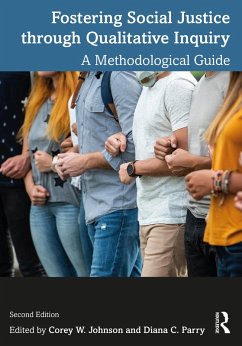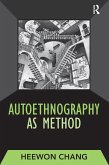Dr Kim Lopez: https://youtu.be/vEF71NM_jQc
Dr Jocelyn Scott: https://youtu.be/qfjcbgExEJ0
Dr Brian Kumm: https://www.youtube.com/watch?v=kchW0MDfw44&t=158s,
Dr Luc Cousineau: https://youtu.be/IjRvRw3WjgY
Now in its second edition, Fostering Social Justice through Qualitative Inquiry, addresses the methods of conducting qualitative research using a social justice paradigm. Qualitative researchers increasingly flock to social justice research to move beyond academic discourse and aid marginalized, oppressed, or less-powerful communities and groups.
The book addresses the differences that a social justice stance requires from the researcher, then discusses how major theories and qualitative methodologies are employed to create social justice in both the process and products of qualitative research. Snapshot theory chapters introduce the foundations of theories like feminism, critical race theory, queer theory, and many more. Robust methodological chapters cover grounded theory, phenomenology, ethnography, participatory action research, and other key qualitative designs. Chapters are written by experts in the specific theory or methodology, and exemplars of the authors work illustrate this style of research in action.
New to this edition:
. Expanded attention to the theories most commonly associated with social justice research by authors who have put it to use
. Methodological chapters on autoethnography, collective memory work, digital methods and postqualitative inquiry
. Chapter Reflection Questions to help students and their supervisors/instructors apply what they've learned
. Recommended readings from each author with annotations to encourage additional exploration
This established textbook will be suitable for graduate students and scholars in qualitative inquiry in a range of disciplines, including Education and Gender and Sexuality, Communication, Leisure Studies, and across the social sciences.
Dieser Download kann aus rechtlichen Gründen nur mit Rechnungsadresse in A, B, BG, CY, CZ, D, DK, EW, E, FIN, F, GR, HR, H, IRL, I, LT, L, LR, M, NL, PL, P, R, S, SLO, SK ausgeliefert werden.
"The first edition of this book has been perfect for my graduate-level qualitative research design class. Students always appreciate how social justice is positioned as the very purpose of qualitative inquiry, thoroughly integrated with the book's detailed guidance on research study design. I was incredibly impressed to see that in this second edition Johnson and Parry have managed to expand the breadth of theoretical positions and methodological approaches included. I was particularly excited to read the new chapter on digital methods for social justice, a chapter that I will no doubt be sharing regularly with students new to this type of data . A strength of the second edition is the sheer number of scholarly voices that are included, each an expert in their own right. Bringing these voices together for the purpose of changing the world through meaningful, robust inquiry is an amazing contribution for which my students and I are grateful." -- Trena M. Paulus, Ph.D., Co-author of Doing Qualitative Research in a Digital World
"This book restores meaning to the term 'social justice' and orients researchers in its pursuit. Rather than an empty phrase or political weapon, Corey Johnson and Diana Parry center social justice as a commitment to action that invokes change toward a more equitable world. They stress that not only can anyone become involved in striving for social justice, but also, it is a researcher's responsibility to consider the impact of their work in the world. Therefore, this book is essential reading for students, early career scholars, and established researchers as it provides a solid grounding in the application of theories and qualitative methods toward social justice. It also showcases research projects embedded with social justice values that will spark a new sense of meaning and motivation for anyone whose research addresses social problems.
The collection provides all the necessary building blocks for engaging in social justice-focused qualitative inquiry. Johnson and Parry's anchoring chapters bring the reader through the essentials of choosing a theoretical orientation, designing a research project, and taking stock of key considerations when applying methodologies. The snapshot theory chapters provide clear explanations of concepts and philosophies, which can otherwise seem daunting, while demonstrating their application to real research scenarios. With a similar logic, the in-depth methodology chapters discuss the background of each approach, steps for data collection and analysis, ethical considerations, researcher subjectivity and each methodology's application to social justice aims. Methodologies are vividly illustrated through real research examples, as authors share snippets from interviews, observations in field sites, and reflexive memos. Their suggestions for further reading are invaluable, making each chapter a pivotal starting point that illuminates the way for impactful social justice research. The book gives voice to a diversity of authors from different backgrounds and standpoints, who share about an impressive range of research experiences, bringing to the forefront concerns relating to race, gender, sexuality, decolonization, disability, class and other realms of marginalization. Their collective insights bring us closer to understanding the nuances of addressing injustice experienced by particular individuals and communities while also grasping a broader view of how the everyday choices we make in our research can contribute to a more just social landscape." Dr. Stefanie Duguay, Assistant Professor, Department of Communication Studies, Concordia University, USA









